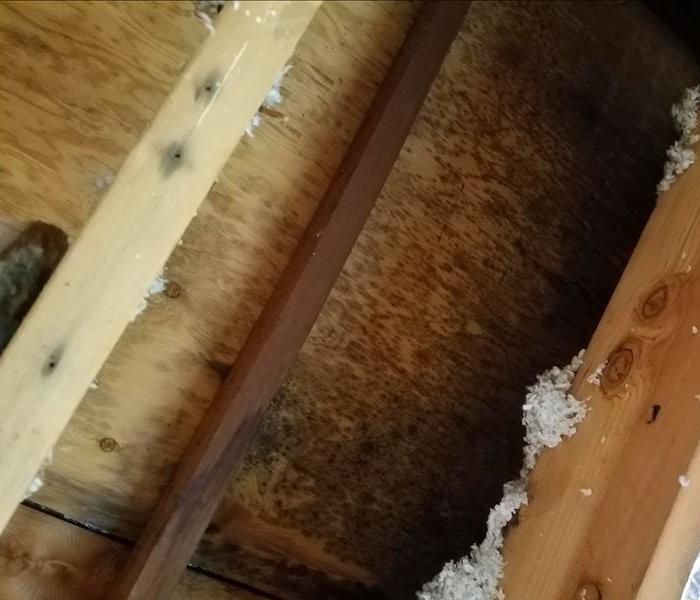Tips To Help You Beat Mold In Your Home This Winter!
1/11/2018 (Permalink)
Just because the weather is getting colder doesn’t mean you’re out of the woods when it comes to mold. Mold is still alive, even in freezing temperatures.
How Does Mold Continue To Thrive In Winter?
Mold needs moisture and darkness to proliferate, and winter is primarily wet and dark. It is one of the best times of year for fungi to grow and multiply.
During winter, we tend to close up our homes when it gets colder, and a tightly sealed, warm home lends itself to mold growth, especially in wet or moist areas with improper ventilation.
Mold growth in winter is not only relegated to inside the home. The outdoors has its own special blend of circumstances for mold to thrive—most notable of which is dead plant matter. When leaves fall and plants die, the decaying plant matter releases mold spores in the air.
Can Mold Live In Freezing Temperatures?
Surprisingly, yes. Even in freezing temperatures (below 32° Fahrenheit), mold is still a living organism. Mold spores can survive very extreme environmental conditions. They lie dormant in extreme cold, but at the hint of a thaw, they will grow once again, outdoors or even in your freezer. Low, or freezing, temperatures do NOT kill mold—even if it lies dormant for an extended period of time.
Mold will come back as soon as conditions are right for it do so. All spores need are moisture, a bit of heat, and “food” (organic material that contains carbon atoms) in order to grow. That is all it takes. Within 24-48 hours of a thaw, mold spores start to multiply.
How Do You Prevent Mold (Or Get Rid Of It) In Winter Months?
The same way you do any other time of the year—fix any known leaks, dry out the moisture in your home, clean the mold affected areas and remove and dispose of items that can’t be cleaned.
Fungi thrives on quick-to-decompose items such as books, piles of loose papers, or boxes of clothing. If you’re storing those things long-term, pick an area away from external walls or windows that invite condensation.
If you are concerned about the possible health risks associated with handling mold or that your home might be damaged during the cleanup process, call us here at SERVPRO with any questions you may have.






 24/7 Emergency Service
24/7 Emergency Service
